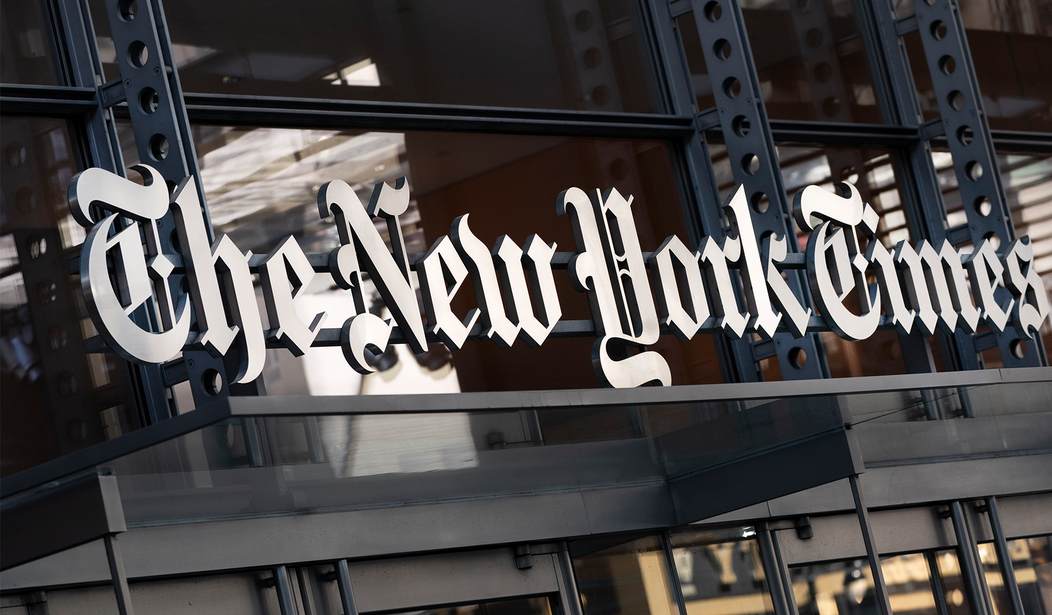It was on February 24, 1957, that The New York Times commenced a propaganda campaign that two years later earned it the following: “To our American friend Herbert Matthews with gratitude. Without your help, and without the help of the New York Times, the Revolution in Cuba would never have been.”
The setting for the special award of gratitude was the very New York Times headquarters in New York City and the awarder was Fidel Castro himself, as he pinned a specially minted medal on New York Times’ beaming Latin American reporter Herbert Matthews. Earlier, Castro had received a warm greeting from NY Times publisher Arthur Hayes Sulzberger himself.
Che Guevara doubled down on this revolutionary gratitude in his diaries: “Much more valuable than rural recruits for our guerilla force,” he snickered, “were American media recruits to export our propaganda.”
“Fidel Castro has strong ideas of liberty, democracy, social justice, the need to restore the Constitution,” started the special series of articles by Matthews who first met Fidel Castro in his hideout in Cuba’s Sierra Maestra Mountains on February 13th of that year, “but it amounts to a new deal for Cuba, radical, democratic and therefore anti-Communist.” (Herbert Matthews, New York Times, February 1957.)
“This is not a Communist Revolution in any sense of the term,” continued Matthews in another article in July of ’59. “In Cuba there are no communists in positions of control. Fidel Castro is not only not a Communist, he is decidedly anti-Communist.” (Herbert Matthews, New York Times, July 1959.)
(Fidel Castro, Raul Castro and Che Guevara, by the way, had a KGB handler named Nikolai Leonev since 1955.)
Fast forward to 2017 and the New York Times was offering a special cruise to Cuba in order to “get a unique perspective on a land long inaccessible to Americans.” The cruise included the personal guidance of New York Times-selected experts, gushed the Times ad.
Recommended
One of those “experts” was New York Times long-time Latin American reporter Anthony De Palma, who also authored the book “The Man Who invented Fidel Castro,” about his late and infamous colleague Herbert Matthews. Though (semi) billed as a mea-culpa of sorts by The New York Times, De Palma’s book in fact upholds the Times’ long and proud tradition of Fake News on Cuba. To wit:
De Palma starts his book with a nail-biting account of the “perils” (!) his late colleague Herbert Matthews faced while clandestinely (!) setting up the interviews with Fidel Castro in the hills! Then he describes the death-defying (!) journey to those ground-breaking interviews.
“He (Matthews) did not see anyone from the Batista government because he feared that doing so might raise suspicion about his presence in Cuba,” starts De Palma in his book... “Matthews had decided that the best way of getting past the cordon of troops surrounding the Sierra was to bring along (his wife) Nancie and pretend to be a couple of middle-aged American tourists out with some young Cuban friends.”
“Matthews confided to her that many young Cubans were risking their lives (!) to smuggle him into the mountains, so it was important to be discreet during the long trip. The long hours on the rough road singing Cuban songs or talking about the revolutionary movement for which they were risking their lives (!) Matthews was enthralled by his secret passage through Cuba.”
“A soldier stepped into the road in front of them!” De Palma writes. “It was the first real test of their plan. He peered inside the car, checking out the young Cubans in the front and the American couple in the back. They all held their breath for a second, their hearts racing…He took a quick look around the car and smiled, then waved them through..”
“WHOOOH!” The fingernail-less reader of De Palma’s book exhales! “That was close!”
In fact, the trip by Matthews to Castro's “secret” camp in the hills had actually been arranged by the U.S. ambassador to Cuba with Batista's own help! During congressional hearings, Arthur Gardner, U.S. ambassador to Cuba at the time of Matthews’ trip, testified to this under oath!
The New York Times’ prize-winning investigative reporter Anthony De Palma wrote his book about Matthews in 2006, almost exactly a half century after The New York Times’ prize-winning investigative reporter Herbert Matthews wrote his famous Castro propaganda articles. Which means—not to take anything away from De Palma’s heart-pounding prose—that for 48 years sworn testimony on the public record that makes a hilarious hash of De Palma’s account of Matthews' adventure was available to anyone willing to devote about 60 seconds to investigate the issue!
In fact, Matthews' trip to the Sierra for the Castro interview was not only approved by Batista (who thought Castro was dead at the time so it would do no harm), but he provided a police escort to ensure Matthews' safety every step of the way! (Both Batista and Gardner feared that members of Castro and Che Guevara’s terrorist Julio 26 group might murder Matthews then blame it on Batista’s forces for a huge propaganda brou-ha-ha.)
At any rate: here’s the proof:
From the congressional hearings titled: COMMITTEE ON THE JUDICIARY UNITED STATES SENATE EIGHTY-SIXTH CONGRESS SECOND SESSION PART 9. AUGUST 27, 30, 1960
Senator DODD: “Did (New York Times reporter) Herbert Matthews ever contact you while you were the Ambassador in Cuba.”
Mr. GARDNER: “I made it possible actually for Herbert Matthews to go down and have this interview (with Castro), because he asked me.”
Senator DODD: “Yes. I wanted to ask you, about that. He (Herbert Matthews) did ask for assistance in arranging an interview with Castro? “
Mr. GARDNER: “He did.”
Senator DODD: “And this was arranged?”
Mr. GARDNER: “Yes.”
Every item above thoroughly documented in links provided here.























Join the conversation as a VIP Member